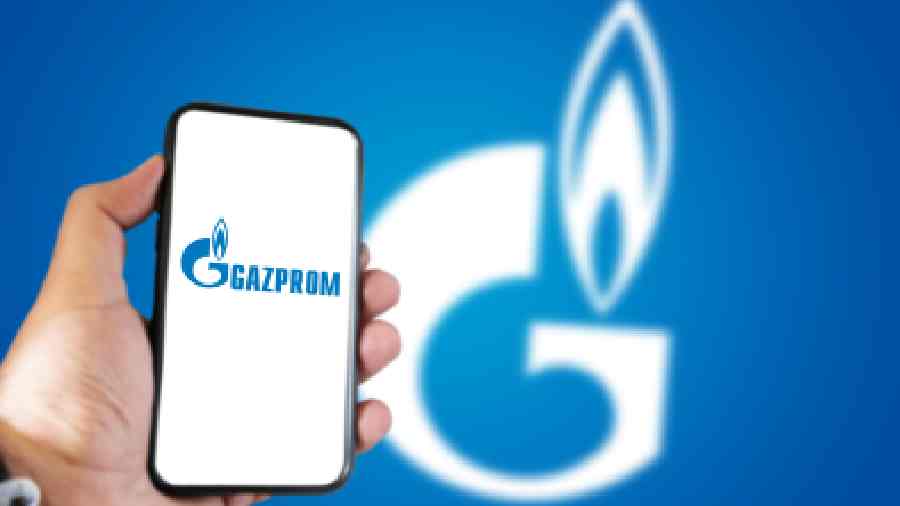The EU’s chief executive on Wednesday branded as “blackmail” Gazprom's move to halt supplies to some European customers, but said the bloc was working on a coordinated response to Moscow’s escalation.
Gazprom said it had cut supplies to Poland and Bulgaria for failing to pay for gas in roubles, Moscow’s toughest response yet to sanctions imposed by the West over the conflict in Ukraine.
“The announcement by Gazprom that it is unilaterally stopping delivery of gas to customers in Europe is yet another attempt by Russia to use gas as an instrument of blackmail,” European Commission president Ursula von der Leyen said.
“This is unjustified and unacceptable. And it shows once again the unreliability of Russia as a gas supplier,” she said in a statement.
Von der Leyen said the EU was prepared for this scenario, and would continue its work to ensure alternative supplies of gas and that gas storage is filled. EU rules require all countries to have a contingency plan to cope with a gas supply shock. EU gas storage is currently 32 per cent full.
The EU was working on a coordinated response to Russia’s escalation, Von der Leyen said, and the bloc’s “gas coordination group” of representatives from national governments and the gas industry was meeting on Wednesday morning.
Poland’s climate ministry said on Tuesday its energy supplies were secure and there was no need to limit supply to consumers.
Change in control
Germany is preparing for a change of control at the PCK refinery in Schwedt operated by Russian state-owned Rosneft that accounts for all of Germany’s remaining Russian oil imports, economy minister Robert Habeck said on Wednesday.
Germany has set out plans to become independent of Russian oil, which would make a EU oil embargo manageable for Europe’s biggest economy.
It has reduced the proportion of oil it sources from Russia to 12 per cent from 35 per cent, leaving PCK the only remaining consumer of Russian oil in the country.
Rosneft “is not interested in not refining Russian oil. If I call them and ask, ‘What are you doing to become independent of Russian oil’, they won’t even pick up the phone,” Habeck said in a video posted on Twitter by the economy ministry.
PCK supplies parts of eastern Germany, including Germany’s capital Berlin, as well as western Poland.
In the video posted on Wednesday, Habeck said he was nearing an agreement with Poland following talks he held there on Tuesday. “We made good progress. Now it’s about technical details,” he said.
Under Habeck’s plans, part of the supply for PCK would be shipped via the German Baltic Sea port of Rostock, and Habeck said solidarity from Poland was needed to supply the rest.
“The Poles say, quite rightly, ‘We don’t want to bring Polish oil to Germany to keep Schwedt alive’,” Habeck said in the video. “But we are speaking about a case where Germany supports Poland and Poland supports Germany in the event that Rosneft is no longer the operator of the refinery,” he said.











